“It Wasn’t Political; It Was Personal”
Blood, Sweat, and Tears: The Fight for Yes One Year On
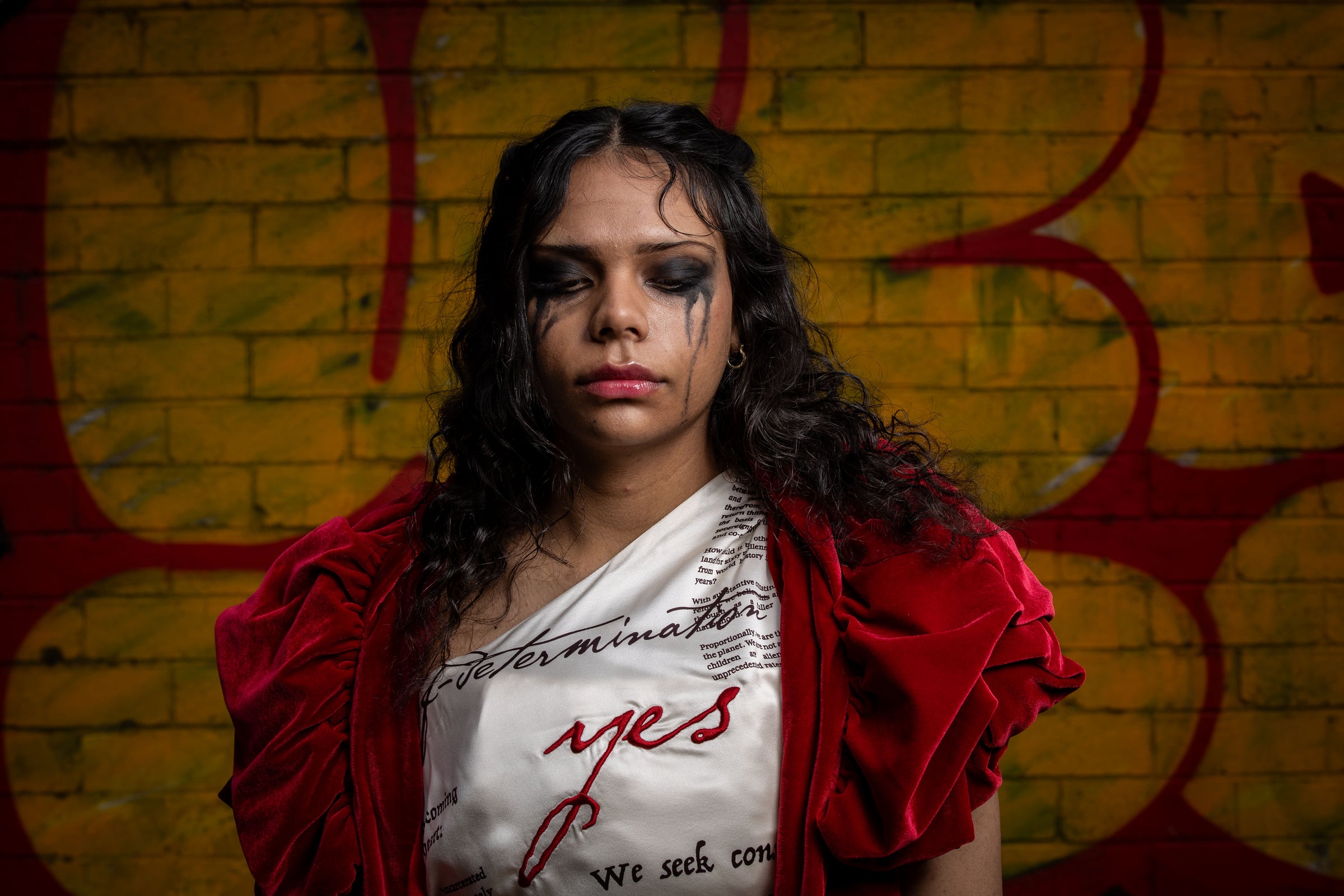
At Clothing The Gaps, we believe in using fashion to spark conversations, and our supporters trust us with their stories. We are marking the first anniversary of Australia’s referendum on a First Nations Voice to Parliament by revisiting the ‘Yes’ dress and sharing stories from the referendum.
After the referendum, we created a space for people to reflect and share their experiences, collecting over 200 stories. One-third of these stories came from Indigenous voices—people whose lives were being debated and who were directly impacted by the outcome of Oct 14, 2023. These stories reveal the depth of pain, the sense of rejection, and the enduring hope that many felt, even amidst the grief.
The ‘Yes’ dress that we created for Mutthi Mutthi and Wamba Wamba Senator Jana Stewart to wear to the Parliamentary Mid-Winter Ball in 2023, was intended as an invitation for dialogue. Revisiting this dress through this image of 17-year-old Koori Noongar, Rachael Johnson, who featured in the Yes23 campaign, captures the aftermath of the referendum. It reflects how the decision felt to many Indigenous people: rejection, sadness, and mistrust in the community around them. We are sharing this image because it speaks to the deeper emotions many are grappling with.
It has now been 12 months since Australia’s historic referendum on a First Nations Voice to Parliament—a vote that left a legacy of hurt, deep reflection, and unresolved tensions. As we reach this anniversary,
it is crucial to acknowledge the profound differences in how Indigenous and non-Indigenous people experienced this moment. Even among those who voted ‘Yes,’ the outcome has been deeply painful, leaving many grappling and ashamed of this country we live in.
It Wasn’t Political; It Was Personal
For many Indigenous people, the referendum was not simply a political exercise - it was personal. In the stories shared with us, Indigenous people reflected on feelings of isolation, betrayal, and trauma during the campaign. One respondent captured this in a powerful phrase, that they felt like a “stranger in my own lands.”
During the referendum process, First Nations disadvantage was publicly debated, the resurgence of everyday racism was blatant, and as a nation, we witnessed decades of progress slip away.
“The whole saga was traumatic. It was like living back in the past, as if all the progress we thought we had made had just evaporated,” another Indigenous woman shared. For many, the referendum felt like a rejection of their existence in modern Australia. “It was more than a vote; it felt like being told that we still don’t belong here,” one Indigenous community member shared.
The pain was made even more acute by personal divides within families. Some felt abandoned by loved ones who voted ‘No.’ “My Dad voted 'no'. He spoke about it for months. I’ve never felt so distant from him,” one Indigenous person recalled. “It wasn’t just a political choice; it was a rejection of my identity,” shared another Indigenous respondent, highlighting the lasting impact on family relationships. The referendum fractured families, leaving many Indigenous people feeling more isolated than ever before.
The Heavy Weight of Racism
A recurring theme among the reflections from Indigenous people was not just the increase in incidents of racism but the unsettling resurgence of such attitudes becoming socially acceptable during the campaign. “The level of racism was like living back in the past,” one person noted. Many Indigenous Australians shared that they felt dehumanised and unsafe amidst the public debates, with targeted abuse becoming an all-too-common experience. As one Indigenous person put it, “the level of racism in this country is astounding, as is the level of ignorance. I’m 57, and I’m tired.”
One Indigenous story shared that the referendum felt like a “platform for politicisation. It unleashed and empowered hordes of racists who now seem like they have complete justification in minimising the value of our lives and any kind of social equity. I’ve never felt so unsafe and unwelcome on my own traditional Country.” These stories underscore the deep pain that accompanied the campaign — a sense that they were fighting not just for a voice, but for their right to be seen and respected, both online and in person.
This hostility spilled over into online spaces, where social media and other forums were flooded with discriminatory remarks. Respondents described how platforms like Facebook and Twitter became especially toxic, with
one Indigenous respondent reflecting that they “saw so much hatred and racism online that it became a very unsafe and lonely, sad place to be…Now after the [Referendum] was unsuccessful, every time our culture is shared, the comments are ‘we voted no to this shit’.”
The anonymity of the internet continues to embolden some to express hateful views, turning digital spaces into yet another arena of hostility.
Reality Check for Non-Indigenous People
Non-Indigenous people who supported the ‘Yes’ vote faced a different kind of heartbreak—one of disappointment, tempered by hope. Many found community during the campaign. “Getting together with like-minded people... was such a wonderful experience. It felt like, for once, we could be part of something that truly mattered,” shared one non-Indigenous supporter.
Another common sentiment was frustration with misinformation during the campaign. “Mainly listening to the absolute BS and misinformation people were saying,” one non-Indigenous person noted. Many felt that confusion and a lack of understanding influenced the outcome. “People kept asking, ‘Why do they (Indigenous people) need this?’ as if the answer wasn’t written all over our history,” reflected another non-Indigenous respondent.
Some non-Indigenous people also expressed their frustration with the broader lack of empathy. “It was as if people couldn’t see past their own fears to understand what was at stake for so many of us,” one
non-Indigenous supporter remarked, pointing to the disconnect in understanding the referendum’s true impact.
For some non-Indigenous people, the referendum became a wake-up call—a realisation that the political and social systems they trusted were not as inclusive or fair as they believed. While they too were shocked by the referendum result, Indigenous communities faced the familiar sting of rejection and exclusion that has been faced for generations.
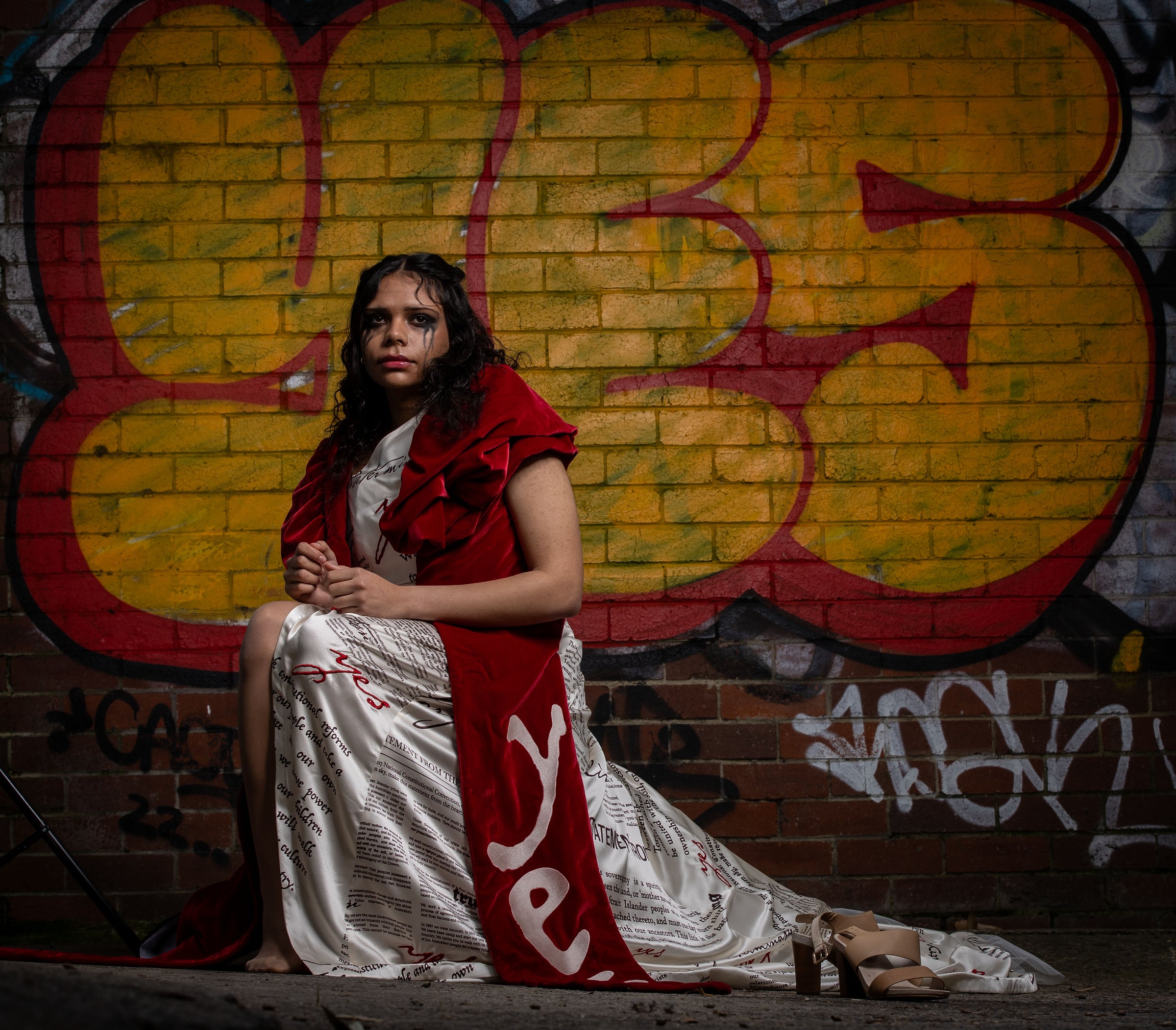
Image: Rachael Johnson in ‘Yes Dress’ Photo: Darrian Traynor.
Different Kind of Heartbreak
While both Indigenous and non-Indigenous people were impacted by the referendum, these experiences were markedly different. For Indigenous people, the vote was a reminder of deep-seated racism, and another rejection of identity and history. Words like “dehumanising” and “painful” appeared repeatedly in these stories, reflecting deep emotional wounds with only a small number of Indigenous people sharing any positive experiences of the referendum. One Aboriginal Education consultant shared “I sometimes look at an audience of 100 people that I am speaking to and that think that 70% of them voted for me and my kids not to have a voice”.
Post referendum, for many non Indigenous people, the feelings of guilt, shame and expressions of how ‘sorry’ they were for the outcome were overwhelming, however they still quickly arrived at a place of holding hope for the future.
For many Indigenous people, this feeling of ‘hope’ is still distant. One Indigenous person reflected that “the feelings I felt were so hopeless, I couldn’t stop crying. The world around me had moved on. With all due respect to allies that voted yes, after the announcement they went back to their normal lives. I didn’t get to move on and nor did my family and First Nations friends… we need our allies now more than ever” and another Indigenous
person commented, “like so many others, I have lost hope!”
Moving forward means beginning with the hard reflections on the referendum and facing the uncomfortable truths it has revealed. Let’s ensure that when we look back on this moment in the decades to come, we do so without the regret that shadows so many other chapters of our history.
It’s Still Yes…
A year on, the referendum remains a source of reflection and pain. For Australia to move forward, we must recognise the harm caused by the Referendum to Indigenous people emotional, spiritual and physical wellbeing. “We are 65,000 years strong. But this still hurts,” one Indigenous respondent reflected. Indigenous peoples’ resilience is a testament to Indigenous strength, but it must not serve as an excuse for the nation to ignore the damage caused—not only by the final ‘No’ outcome but by the entire process that led to it.
This moment marks a turning point for Australia— we are in a time where conservative and divisive views have gained a louder voice, revealing just how deep these attitudes and beliefs still run. But it’s also proof that a different vision of the future exists—one where over 6 million Australians stood up for equality, inclusion, and progress when voting ‘yes’.
For non-Indigenous readers wondering what comes next, the answer has always been the same: it is still a ‘Yes’—to truth-telling, to treaty-making, and to standing up for justice. It is a commitment to showing up every single day. This fight is far from over, and complacency is not an option.
If this need to talk or support you can reach out via phone or SMS to Lifeline on 13 11 14 or for Mob specific services there is also Yarn 13 92 76 available 24 hours, 7 days per week.
Read more blogs View all
'65,000 Years Strong' Post Referendum Campaign
Petitions
Feel free to comment below to add more petitions to this list!
One campaign we actively support is the Our Island Our Home initiative, led by the Torres Strait 8, who are advocating for Australian Government funding to build crucial seawalls protecting their islands from rising sea levels.
Clothing The Gaps has also started a petition ‘Australia Day - Not a date to celebrate!’ petition calling for leadership from Prime Minister Albanese to acknowledge the harm that January 26 represents and to commit to a thoughtful and inclusive process to reconsider its place as a national holiday.
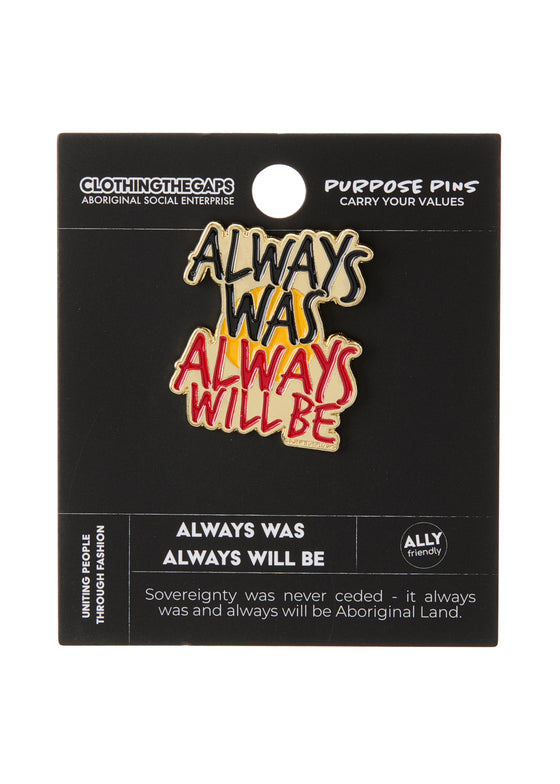
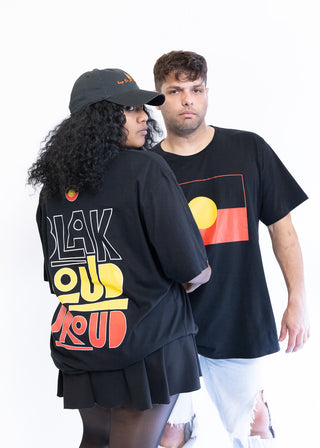


Your yes Tee and beyond
Wearing your values
In a time when the majority of Australians voted "No," what we choose to wear became a powerful way to identify allies, create connections, and foster a sense of community—most importantly, it sparks conversations that support First Nations peoples. We’ve curated some items we believe are perfect for this moment—because what you wear can spark change.
Referendum: For a First Nations Voice to Parliament
We are deeply committed to driving conversations and actions for social change. In the lead-up to the October 14, 2023, referendum we created and shared a range of resources, including insightful podcasts, compelling videos, and informative articles.
Although the referendum didn't pass, we hope people continue to learn and educate themselves with these resources, keeping the conversation and momentum alive.
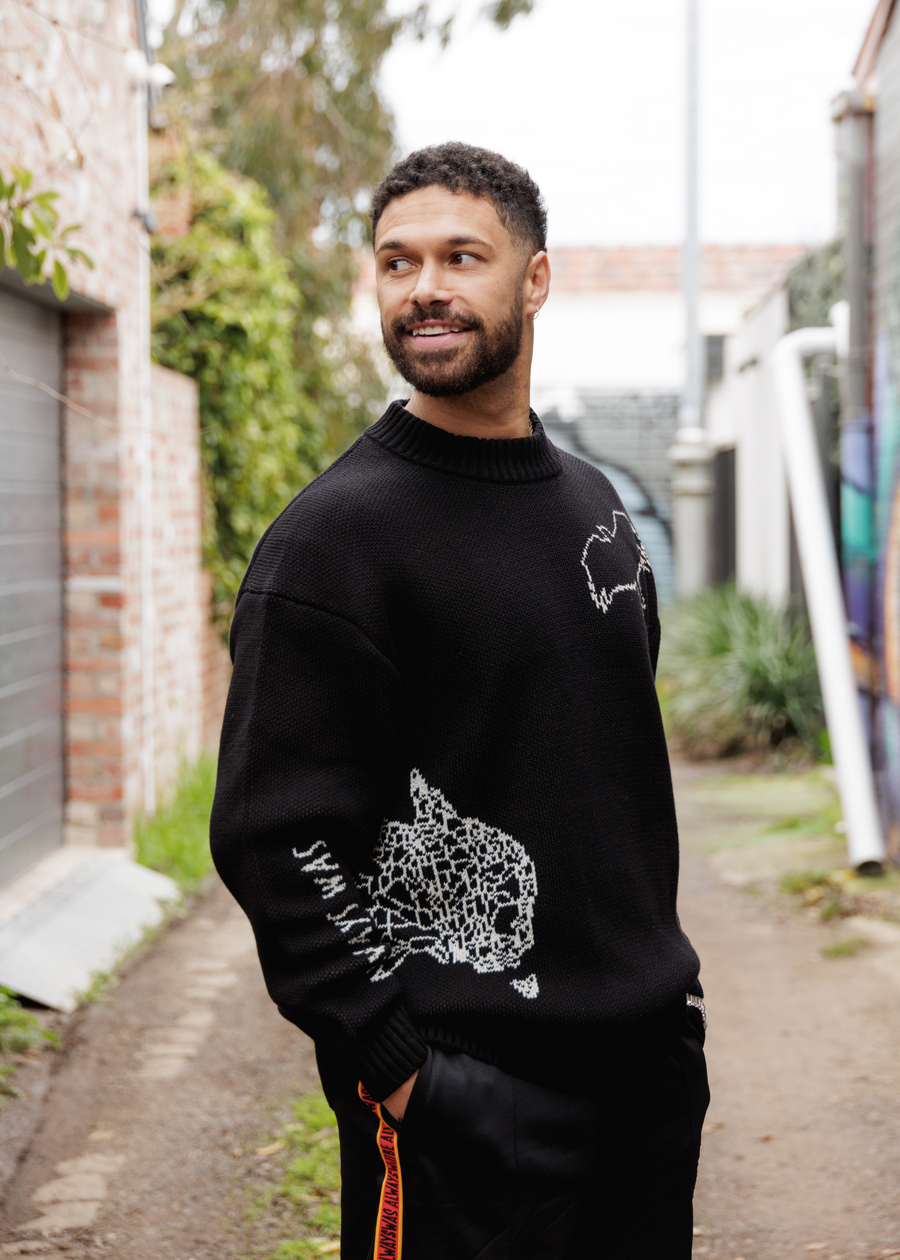







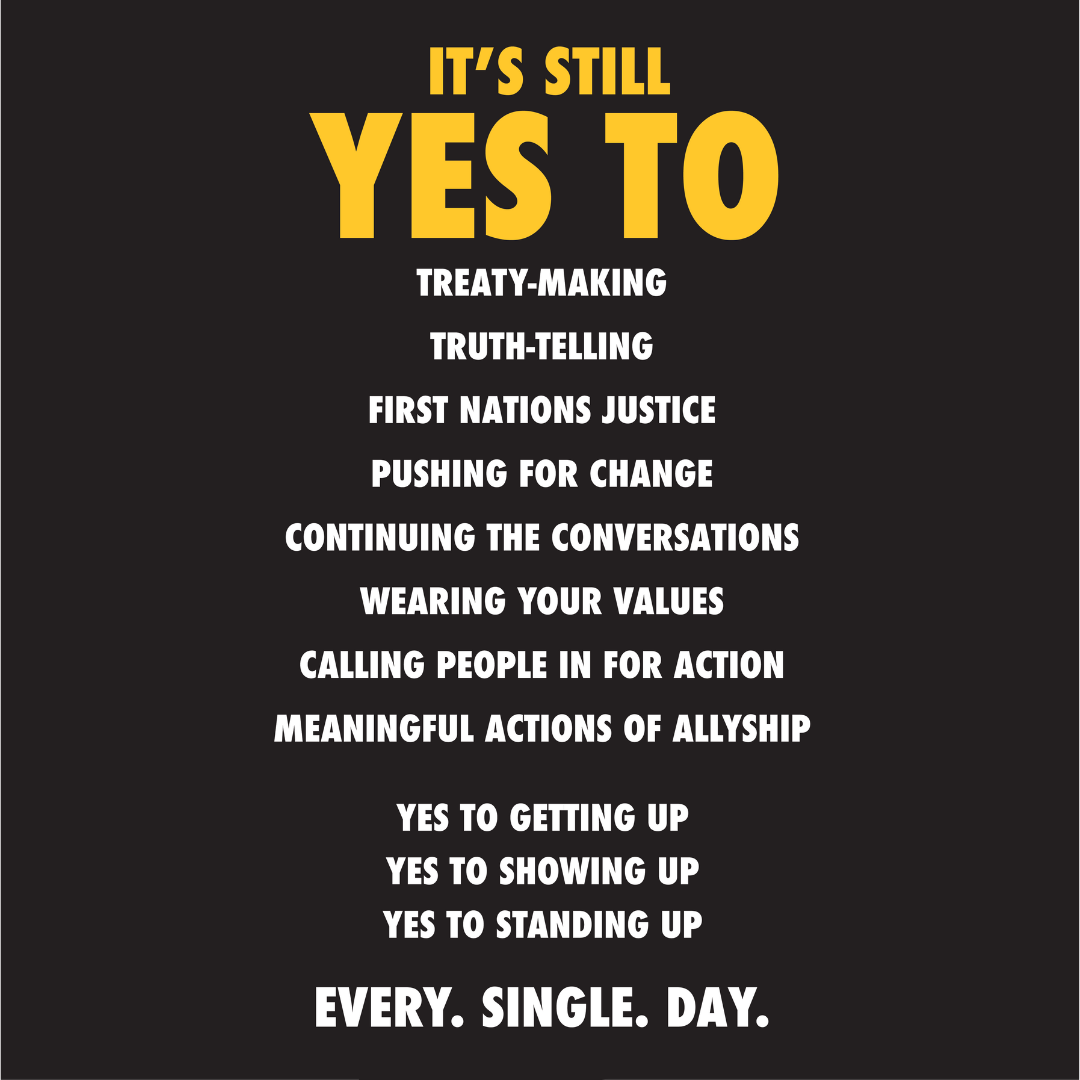
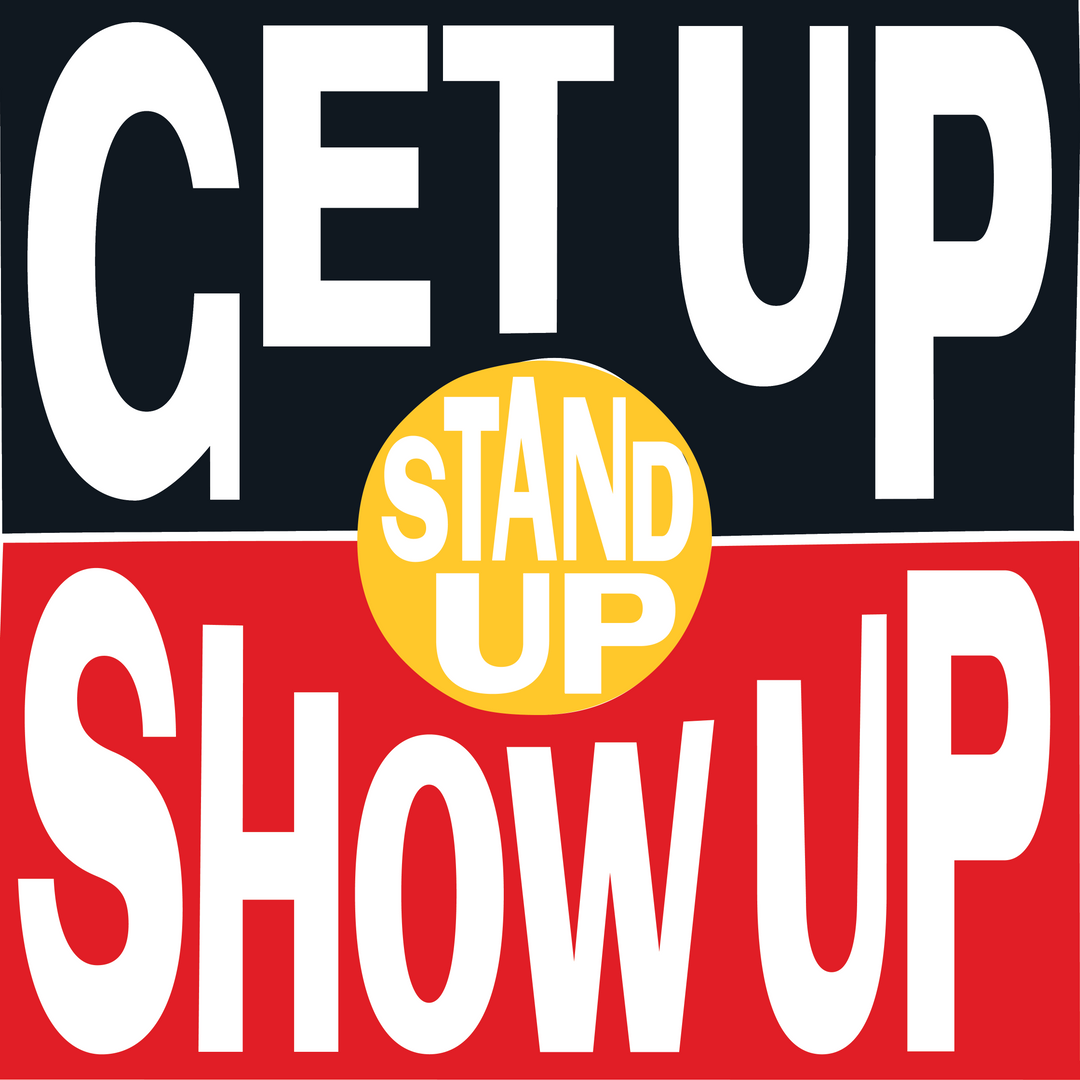
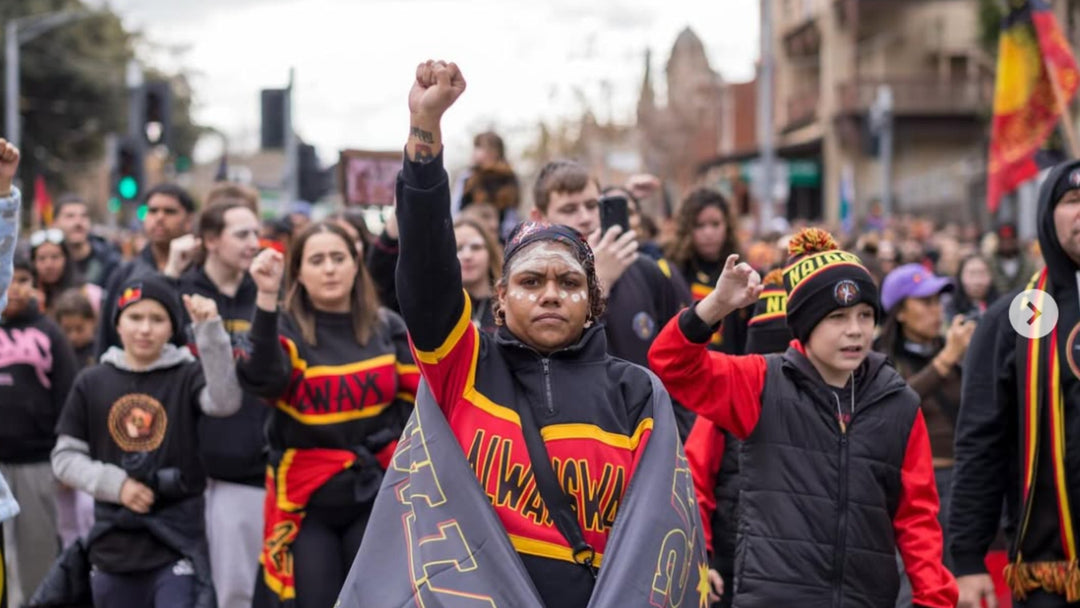
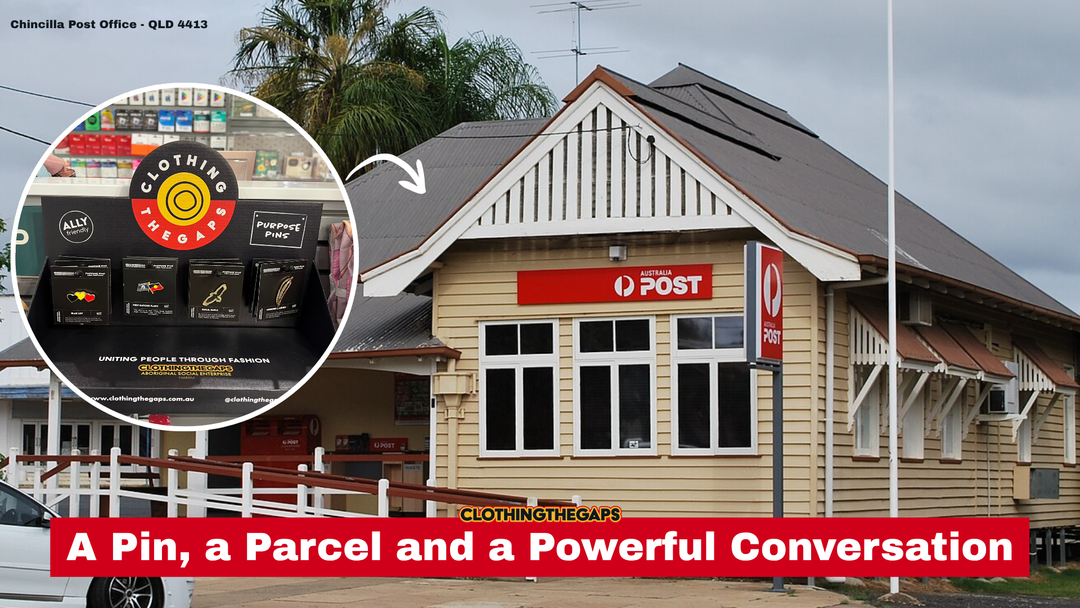





Thank you for this blog. I voted Yes and feel bewildered by how the referendum turned out. How the Liberal Party turned it’s back on everything and the misinformation and arrogance that came with this flawed me. We can only keep moving forward – with Yes to Treaty, Yes to truth telling.
Leave a comment